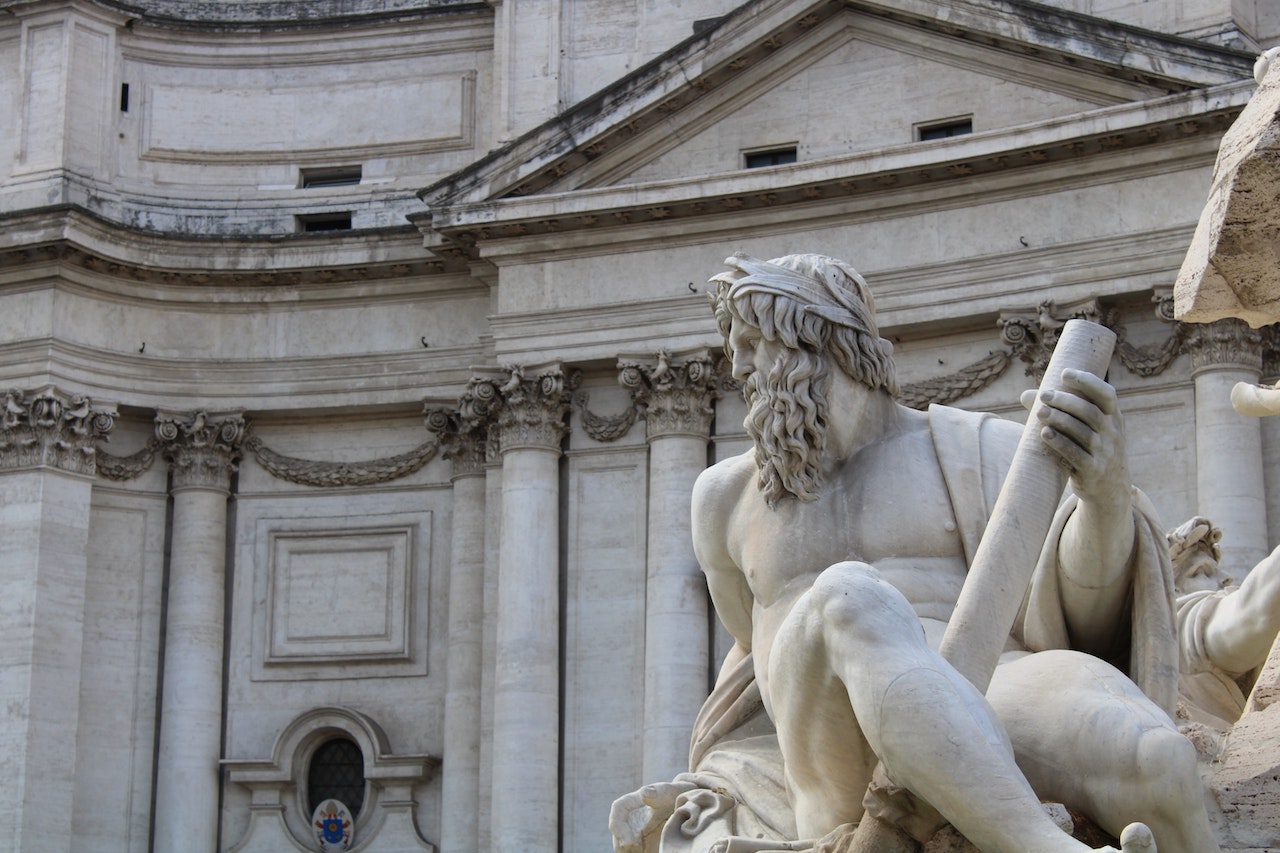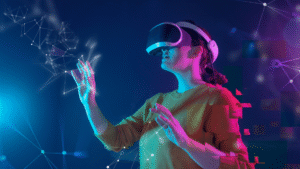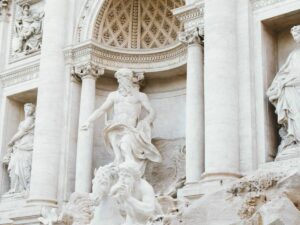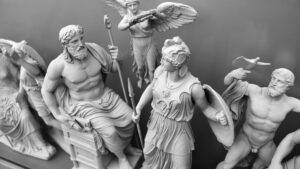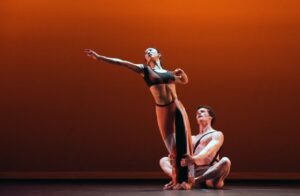What Is Modern Mythology?
Modern mythology refers to the stories, symbols, and archetypes that define our contemporary culture, blending ancient mythological frameworks with modern contexts. Unlike classical myths about gods and heroes, modern myths often emerge from media, technology, pop culture, and societal values. They shape how we see ourselves, our heroes, and our world. Think of superheroes, urban legends, or even the narratives we craft around technology—these are today’s myths.
The Roots of Modern Mythology
How Ancient Myths Evolve into Modern Narratives
Ancient myths, like those of Zeus or Odin, explained the unexplainable: creation, nature, and human existence. Today, modern mythology serves a similar purpose but reflects our current realities. For instance, the hero’s journey, a concept popularized by Joseph Campbell, still thrives in films like Star Wars or The Matrix, where ordinary individuals rise to face extraordinary challenges. These stories resonate because they tap into timeless human experiences—struggle, triumph, and transformation.
The Role of Media in Shaping Modern Myths
Media is the modern campfire where myths are born and shared. Movies, TV shows, books, and social media platforms amplify stories that define our collective imagination. Consider the Marvel Cinematic Universe: its superheroes are modern gods, wielding powers that mirror ancient deities while grappling with human flaws. These narratives don’t just entertain—they provide meaning and identity in a complex world.
Key Elements of Modern Mythology
Archetypes in Today’s Stories
Archetypes are universal patterns that persist across cultures and eras. In modern mythology, we see:
- The Hero: Characters like Harry Potter or Katniss Everdeen, who overcome adversity to save others.
- The Trickster: Figures like Loki in Marvel films or internet trolls who disrupt for chaos or revelation.
- The Mentor: Think Obi-Wan Kenobi or Professor Dumbledore, guiding heroes with wisdom.
- The Shadow: Villains like Thanos or the Joker, embodying chaos or suppressed fears.
These archetypes connect us to ancient storytelling traditions while reflecting modern values like individualism and resilience.
Symbols and Their Modern Meanings
Symbols in modern mythology carry deep cultural weight. A smartphone, for instance, isn’t just a device—it’s a symbol of connectivity, power, and sometimes isolation. Similarly, the “red pill” from The Matrix has become a cultural shorthand for awakening to harsh truths, widely referenced in online discourse. These symbols evolve, gaining new meanings as society changes.
Technology as a Mythic Force
Technology often takes on a mythic role, portrayed as both savior and destroyer. In films like Ex Machina or Black Mirror episodes, AI represents a Pandora’s box—promising progress but threatening humanity. This duality echoes ancient myths of fire or forbidden knowledge, showing how we still grapple with the consequences of our creations.
Modern Mythology in Pop Culture
Superheroes: The Gods of Today
Superheroes are the pantheon of modern mythology. Superman, for instance, mirrors Hercules with his superhuman strength and moral code, while Iron Man reflects the flawed, inventive spirit of Hephaestus. These characters inspire awe, embody ideals, and face cosmic threats, much like ancient gods battled Titans. Their stories, told through comics and blockbuster films, offer moral lessons and escapism.
Urban Legends and Internet Myths
Urban legends, like the Slender Man, are modern folklore born online. Created in 2009 on a forum, Slender Man spread virally, becoming a shared myth that inspired games, movies, and even real-world events. These stories thrive in digital spaces, where communities shape and retell them, proving that myth-making is a collaborative act in the internet age.
The Myth of the American Dream
The American Dream—rising from nothing to success—functions as a modern myth. It’s a narrative of transformation, promising that hard work and grit can overcome any obstacle. Yet, like Icarus flying too close to the sun, this myth has its limits, often ignoring systemic barriers. Its persistence in media and politics shows its power to shape aspirations and identities.
Comparing Ancient and Modern Mythology
| Aspect | Ancient Mythology | Modern Mythology |
|---|---|---|
| Medium | Oral tales, written epics | Films, books, social media |
| Heroes | Gods, demigods (e.g., Achilles, Odin) | Superheroes, influencers (e.g., Superman, Elon Musk) |
| Purpose | Explain nature, rituals, origins | Reflect societal values, identity, technology |
| Spread | Storytellers, priests | Media, internet, global platforms |
| Examples | Greek, Norse, Egyptian myths | Marvel films, urban legends, tech narratives |
Why the Comparison Matters
Ancient myths were local, tied to specific cultures and geographies. Modern myths, amplified by global media, transcend borders, creating shared narratives. While ancient myths explained lightning or harvests, modern myths tackle AI, climate change, or social justice, reflecting our current anxieties and hopes. This shift shows how mythology adapts to human needs across time.
The Role of Myth in Modern Society
Providing Meaning in a Fragmented World
In a world of rapid change, modern myths offer stability. Stories like The Lord of the Rings, rooted in Norse mythology, remind us of courage and community. They help us navigate existential questions: Who are we? What’s our purpose? By framing these questions in relatable narratives, myths provide emotional anchors.
Shaping Cultural Identity
Myths shape how we see ourselves. The “self-made” billionaire, like Elon Musk or Jeff Bezos, is a mythic figure in capitalist societies, embodying innovation and ambition. Yet, these stories can obscure collective efforts or inequalities, showing how myths both inspire and distort. They’re not just stories—they’re lenses for understanding our world.
Influencing Behavior and Beliefs
Myths don’t just reflect culture—they shape it. The myth of “hustle culture” glorifies relentless work, influencing how people prioritize time and success. Similarly, dystopian stories like The Handmaid’s Tale warn against authoritarianism, nudging societal values toward vigilance and resistance. These narratives subtly guide our choices and worldviews.
Pros and Cons of Modern Mythology
Pros
- Inspiration: Motivates individuals through heroic archetypes and success stories.
- Connection: Creates shared cultural touchstones across diverse populations.
- Adaptability: Evolves with technology and society, staying relevant.
- Exploration: Allows safe exploration of fears, like AI or climate crises, through fiction.
Cons
- Misrepresentation: Can oversimplify complex issues, like the American Dream ignoring systemic barriers.
- Manipulation: Media-driven myths may serve corporate or political agendas.
- Polarization: Conflicting myths (e.g., science vs. conspiracy) can divide societies.
- Overreliance: May distract from critical thinking by offering easy narratives.
How to Engage with Modern Mythology
Where to Find Modern Myths
Modern myths are everywhere—movies, books, social media, and even news narratives. Platforms like Netflix, YouTube, or TikTok are rich sources, hosting everything from superhero epics to viral urban legends. Libraries and bookstores also offer myth-inspired literature, like Neil Gaiman’s American Gods, which reimagines ancient deities in modern America.
Tools for Analyzing Myths
To unpack modern myths, try these tools:
- Joseph Campbell’s Hero’s Journey Framework: A guide to spotting universal story patterns.
- Mythology Podcasts: Shows like Lore or Myths and Legends explore modern and ancient tales.
- Literary Analysis Apps: Tools like SparkNotes or Goodreads offer insights into mythic themes.
- Social Media Monitoring: Platforms like X reveal trending myths and cultural narratives.
These resources help you see the deeper meanings behind today’s stories.
Creating Your Own Modern Myths
Anyone can craft a modern myth. Write a story, create a comic, or share a video that taps into universal themes—love, loss, or heroism. Use platforms like Wattpad or Medium to publish your work, or join online communities to collaborate. Your myth could inspire others, just as ancient storytellers shaped their worlds.
People Also Ask (PAA)
What is an example of a modern myth?
An example is the Slender Man, a faceless, suit-wearing figure born on the internet in 2009. It spread through forums, games, and a 2018 film, showing how digital communities create myths that resonate like ancient folklore.
How does modern mythology differ from ancient mythology?
Modern mythology uses contemporary media like films and social platforms, focusing on current issues like technology or identity, while ancient mythology relied on oral traditions to explain natural phenomena or cultural rituals. Both share universal archetypes but differ in context and delivery.
Why is mythology still relevant today?
Mythology provides meaning, shapes identity, and helps us process complex issues like mortality or societal change. Modern myths, like superhero stories, inspire and reflect our values, keeping the tradition of storytelling alive.
Can modern myths influence society?
Yes, modern myths shape behaviors and beliefs. For example, the myth of the “self-made” entrepreneur drives ambition but can oversimplify success, ignoring systemic factors. Media myths also influence political and cultural narratives.
Personal Reflections on Modern Mythology
When I was a kid, I devoured Greek mythology books, imagining myself as a hero facing monsters. Years later, watching Avengers: Endgame, I realized I was still chasing that feeling—rooting for flawed heroes like Tony Stark, who sacrifice for the greater good. Modern myths, like those ancient tales, give us hope and a way to process life’s chaos. They’re not just stories; they’re mirrors reflecting our dreams and fears.
I once heard a friend describe their startup journey as a “hero’s quest,” battling doubts and setbacks to build something meaningful. It struck me how naturally we weave mythic narratives into our lives. Whether it’s a coder likening their work to forging Excalibur or a TikTok creator becoming a modern bard, we’re all myth-makers in our own way.
The Future of Modern Mythology
The Impact of Technology
As technology evolves, so will our myths. Virtual reality could create immersive mythic worlds, while AI might generate new archetypes. Imagine a future where algorithms craft personalized myths based on your data—both thrilling and unsettling. These advancements will deepen our connection to stories but raise questions about authenticity and control.
Globalization and Cultural Fusion
Globalization blends myths from different cultures, creating hybrid narratives. Anime like Attack on Titan mixes Japanese folklore with Western heroic archetypes, resonating worldwide. This fusion enriches storytelling but risks diluting cultural specifics, a challenge for future myth-makers to balance.
The Role of Community
Communities, especially online, will shape tomorrow’s myths. Fandoms on platforms like X or Reddit already amplify stories, from fan fiction to viral memes. These collaborative spaces ensure myths remain dynamic, evolving with each retelling, much like ancient oral traditions.
FAQ Section
What defines a modern myth?
A modern myth is a narrative or symbol that reflects contemporary values, fears, or aspirations, often spread through media like films, books, or the internet. It uses archetypes like heroes or villains to address modern issues, such as technology or identity.
How can I identify modern myths in everyday life?
Look for recurring stories or symbols in media, advertising, or social platforms. For example, the “rags-to-riches” narrative in influencer culture or dystopian themes in TV shows like Black Mirror are modern myths reflecting societal hopes and anxieties.
Are modern myths harmful?
They can be. While myths inspire and unite, they can also oversimplify issues or push agendas. For instance, the myth of “hustle culture” may glorify overwork, ignoring mental health. Critical thinking helps balance their influence.
Where can I learn more about modern mythology?
Explore books like American Gods by Neil Gaiman, podcasts like Myths and Legends, or online courses on platforms like Coursera. Social media platforms like X also reveal trending myths through hashtags and discussions.
How do I create my own modern myth?
Start with a universal theme—love, sacrifice, or discovery—and weave in modern elements like technology or social issues. Share your story on platforms like Wattpad, Medium, or TikTok, engaging communities to amplify your myth.
Conclusion
Modern mythology is more than entertainment—it’s how we make sense of our world. From superhero sagas to viral internet tales, these stories shape our identities, values, and dreams. They’re the campfire tales of our digital age, blending ancient archetypes with today’s realities. Whether you’re analyzing a Marvel movie or crafting your own story, modern myths invite you to explore what it means to be human. So, dive in—watch, read, create, and find your place in the ever-evolving tapestry of modern mythology.
